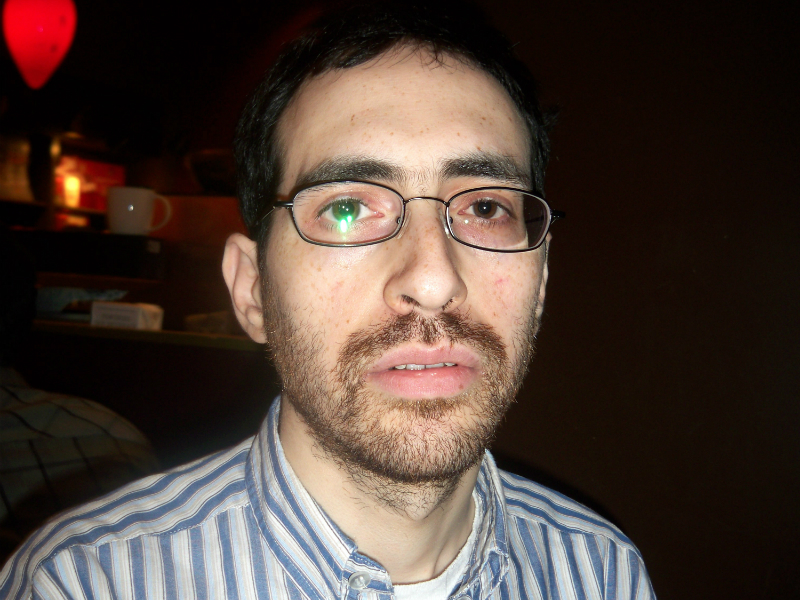A landmark trial concerning the legality of some Hasidic schools in Quebec is scheduled to get underway Feb. 10 and is expected to last at least two weeks, involving the provincial government, public school boards and a host of Jewish schools and religious institutions.
The case is brought by two former members of the Tash Hasidic community in Boisbriand, north of Montreal, Yochonon Lowen and his wife Clara Wasserstein, against the attorney general of Quebec, Commission scolaire Seigneurie des Mille Iles, Le Grand Séminaire Rabbinique de Montréal, Collège Rabbinique de Montréal Oir Hachaim d’Tash, Centre d’éducation religieuse Khal Oir Hachaim, Centre d’éducation Beth Tziril, Yeshiva Oir Hachayim, Académie des Jeunes Filles Beth Tziril, and Elimelech Lowy, the community’s spiritual leader.
The Superior Court trial will be the culmination of Lowen’s years-long grievance against the Tash schools he attended as a child. He alleges the schools failed to teach even the most basic secular subjects thus depriving him of normal opportunities in life and that the education ministry and other public authorities have tolerated the situation at these and other haredi schools in Quebec for decades.
Lowen, 42, first took legal action in 2014 when he attempted to sue for $1.25 million the education department, and the school board and youth protection department serving Boisbriand, as well as two Tash schools. That never went further than sending a demand letter, and he later changed lawyers.
Lowen and Wasserstein’s current lawyer Clara Poissant-Lespérance, said the couple is not seeking damages. Their goal is to obtain a declaratory judgment that the Hasidic schools disregarded the law and are, in fact illegal, and that the government is also culpable for not enforcing the law. Although about a quarter-century has passed since Lowen and Wasserstein were in those schools, the situation is not much improved today, she said.
The trial will be long because of the number of witnesses the plaintiffs will call. These include representatives of the Education Ministry, Sir Wilfrid Laurier School Board, youth protection, and the Boisbriand Hasidic schools.
It has been a tortuous journey to get to this point for the couple who live in Montreal and have four children.
In February 2019 they finally won the right to take their case to court from Superior Court Justice André Wery, who blocked off 15 days for the trial.
The couple filed a motion for a declaratory judgment back in May 2016.
The motion seeks a declaration from Superior Court that the schools named operate in violation of the Education Act, the Act Respecting Private Education, the Charter of the French Language, and the Quebec Charter of Human Rights and Freedoms.
In tolerating the situation, the Quebec government is not meeting its legal obligation, they argue.
In May 2017, a Superior Court judge dismissed motions filed by the defendants to have the couple’s application thrown out, ruling that their case could be heard.
The judge concluded that Lowen and Wasserstein had “clear standing to act in the public interest and that the action presented a serious question that had to be decided by the court,” said Poissant-Lespérance.
The judge did reject their claim against the local school board, the Commission scolaire Seigneurie des Mille Iles. However, the board is cited in this most recent round.
This will be the first court challenge of its kind in Quebec, where successive governments have tried to find a resolution to so-called “illegal” ultra-Orthodox schools for many years.
A few years ago, the Liberal government agreed to a homeschooling arrangement whereby children are taught the compulsory subjects in the provincial curriculum by their parents, who are overseen by a school board, while continuing to go to their religious schools.
Today, more than 2,000 haredi students are enrolled in homeschooling, including those in the Tash community, who are overseen by the Sir Wilfrid Laurier School Board. However, Poissant-Lespérance said the curriculum is not being taught adequately.
Moreover, the Tash schools are not in compliance with the law in other respects, such as having a licence, she pointed out.
When contacted by The CJN, Wasserstein said she and her husband are hopeful, but have been advised by their lawyer not to comment to the media in advance of the trial.
Lowen told The CJN in the past that he received virtually no instruction not related to religion, that he left school unable to read or write in English or French, and could hardly do basic math. He had difficulty finding employment outside the Hasidic milieu.
“Everything except Torah was forbidden; some leaders said it was a sin [to learn anything secular],” said Lowen, who also claims he has suffered psychologically by being brought up in an extremely insular environment.
He left the Tash community more than a decade ago.










